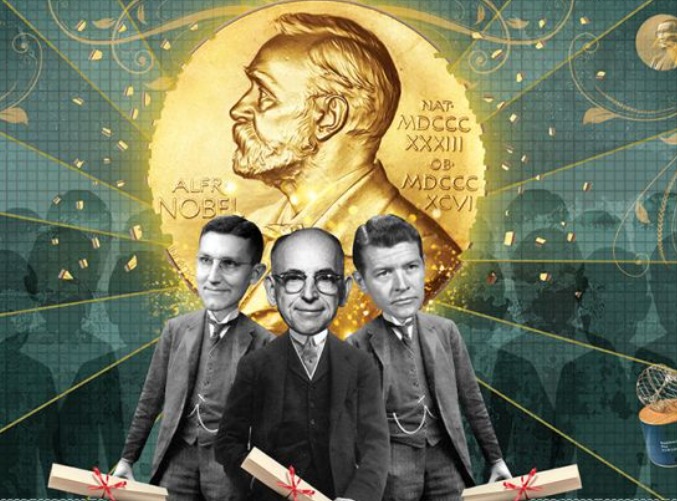
I am excited to take you on a journey through time to explore the history and evolution of the Nobel Prize. As one of the most prestigious awards in the world, they honor exceptional achievements in physics, chemistry, medicine, literature, and peace. In this article, we will delve into the origins of the Nobel Prize, its evolution, controversies, unique laureates as well as its future.
Introduction of the Nobel Prize
The Nobel Prize isnamed after Alfred Nobel, a Swedish chemist, engineer, and inventor who is best known for inventing dynamite. It is awarded annually to individuals or organizations for their outstanding contributions to humanity in the fields of physics, chemistry, medicine, literature, and peace. Widely regarded as the most prestigious award in the world, Nobel laureates are therefore greatly respected for their exceptional achievements.
The history and origin of the Nobel Prizes
It all started in 1896 with the death of Alfred Nobel. Nobel was a wealthy man who had made a fortune through his invention of dynamite. According to his will, Nobel devised the use of the bulk of his fortune for the establishment of prizes (to be known as Nobel Prizes) to be awarded to individuals who had made significant contributions to humanity.
The will of Alfred Nobel
In his will, Nobel specified that the Nobel Prizes should be awarded annually in the fields of physics, chemistry, medicine, literature, and peace. He also precised that the prizes should be awarded to individuals who have made significant contributions to humanity. Nobel left the task of selecting the laureates to various institutions, including the Swedish Academy of Sciences for the Nobel Prize in Physics and Chemistry, and the Karolinska Institute for the Nobel Prize in Medicine.
The first Nobel Prizes and the laureates
The first Nobel Prizes were awarded in 1901, five years after the death of Alfred Nobel. The five first prizes were awarded to Wilhelm Rontgen (Nobel Prize in Physics) for his discovery of X-rays, Jacobus van 't Hoff (Nobel Prize in Chemistry) for his work on chemical thermodynamics, Emil von Behring (Nobel Prize in Medicines) for his work on serum therapy, Sully Prudhomme, a French poet and essayist (Nobel Prize in Literature), and finally, Henry Dunant and Frederic Passy (Nobel Peace Prize) for their work on the establishment of the International Red Cross.
The evolution of the Nobel Prize categories
Over the years, the Nobel Prize categories have evolved to include new fields of study. In 1968, the Sveriges Riksbank Prize in Economic Sciences was established in Memory of Alfred Nobel and was first awarded in 1969. The prize is not one of the original Nobel Prizes but is administered by the Nobel Foundation. The Nobel Prize categories have also expanded to include interdisciplinary work, such as the Nobel Prize in Physiology or Medicine being awarded to both a physiologist and a physicist in 1967.
Controversies and criticisms of the Nobel Prize
Although the Nobel Prize is widely regarded as the most prestigious award in the world, it has also been subject to controversy and criticism. Some critics argue that the selection process is biased towards Western countries. The underrepresentation of women and minorities among the laureates also caught the attention of many. A critique addressed specifically at the Nobel Peace Prize highlights the honoring of certain politicians who have not yet made important steps towards peace while failing to recognize individuals or organizations that have made significant contributions to world peace.
Nobel Prize winners who declined or returned their award
While many people dream of receiving a Nobel Prize, there have been instances where laureates have declined or returned their awards, often due to political or ideological reasons. For example, in 1958, the Nobel Prize in Literature was awarded to Boris Pasternak, a Russian writer who was critical of the Soviet government. Pasternak declined the award, citing his belief that the Nobel Prize would be used to promote Western values.
Unique and unusual Nobel Prize laureates and achievements
The Nobel Prize has recognized many unique and unusual achievements over the years. For example, in 1913, the Nobel Prize in Physics was awarded to Heike Kamerlingh Onnes for his discovery of superconductivity. In 1991, the Nobel Prize in Physics was awarded to Pierre-Gilles de Gennes for his work on liquid crystals. In 2009, the Nobel Prize in Physiology or Medicine was awarded to Elizabeth Blackburn, Carol Greider, and Jack Szostak for their work on telomeres, which are the protective caps at the ends of chromosomes.
The future of the Nobel Prizes
The Nobel Prize islikely to continue evolving in the coming years. As new fields of study emerge and the world faces new challenges, the Prize needs to be adapted in order to recognize the contributions of individuals and organizations in these areas. The Nobel Foundation has also recognized the need to increase diversity among the laureates and has taken steps to address this issue.
Conclusion: The Nobel Prize as symbol of human achievement
In conclusion, the Nobel Prize is a symbol of human achievement, decorating individuals and organizations that have made significant contributions to humanity. The Nobel Prize hasa fascinating history and evolution, and its laureates have included some of the most accomplished individuals in the world. While the Nobel Prize has faced controversy and criticism over the years, it remains one of the most prestigious awards in the world, and its laureates continue to inspire future generations of innovators and thinkers.